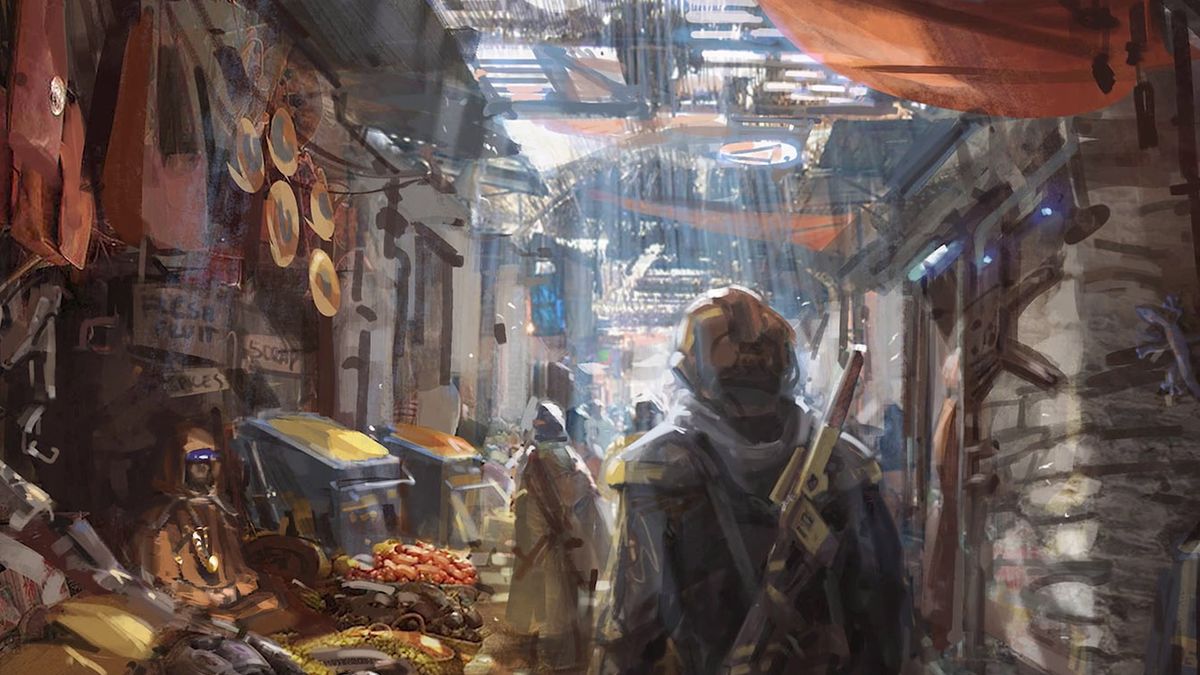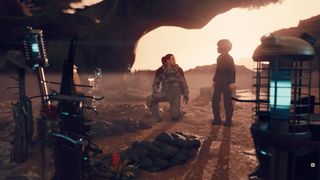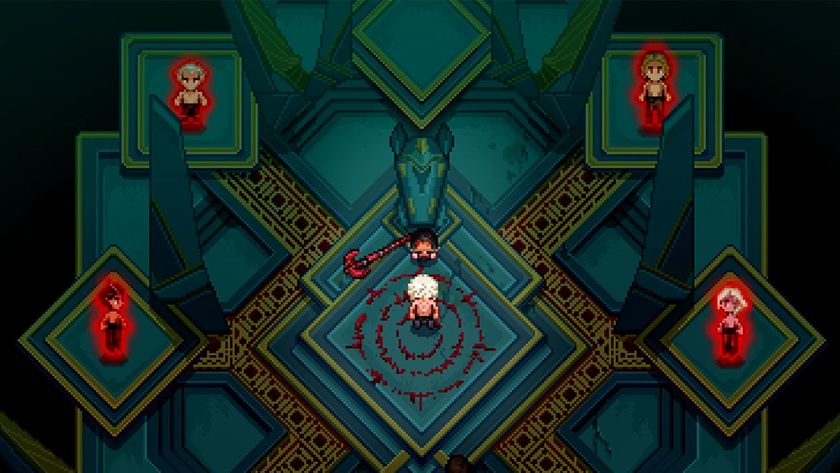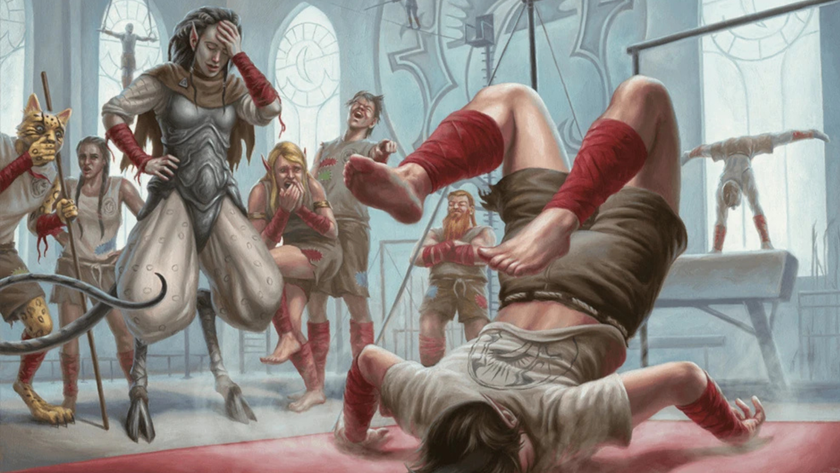I can't wait to see where Starfield goes after seeing the growth of RPGs like Cyberpunk 2077 and Baldur's Gate 3
It's a good time to be an RPG fan

RPG fans are spoiled for choice right now. Not long after Larian Studios put a bow on three years of work by launching Baldur's Gate 3 out of Early Access, Bethesda sated fan fervor for Starfield with a long-awaited launch. It doesn't get easier if you've found yourself locked into the time commitment of playing either, as Cyberpunk 2077's freshly released one-two punch of update 2.0 and the Phantom Liberty DLC sees CD Projekt Red's vision for the game fully realized after a bumpy couple of years.
While all three RPGs place their prestigious maker's design philosophy on show to be contrasted and compared, playing Baldur's Gate 3 and Cyberpunk 2077 makes me wonder where Starfield might go. Each differs in what they might delight loyal fans with, though Baldur's Gate 3 and Cyberpunk 2077 are nearing the end of their respective development journeys while Starfield's has only begun.
The preem team

Cyberpunk 2077's tale is that of a remarkable comeback. Playing the dystopian RPG on PC at launch showed what was possible for the game if you were willing to look past NPC oddities or progress-derailing bugs, whereas playing on a console meant looking to PC to hear about what should have been accessible.
As subsequent releases from other studios took the stage, CDPR sought to put Cyberpunk 2077 back together behind the scenes. With the bugs squashed and performance issues subsequently ironed out, the studio could steadily add the sort of features to bring Night City further to life.
The police are now more inclined to do their jobs after being relative bystanders, offering a Grand Theft Auto-like commitment to taking you down depending on your heat level. The additions of vehicular combat and quick hacks offer further roleplay potential to those looking to raise hell and battle authority out on the open road.
We could talk about how the reworked perks and cyberware offer greater gameplay fluidity in how your V approaches the mission at hand, though it ignores the fact I plan to spend most of my time simply driving around Cyberpunk 2077. Three years later, Night City is still a sight to behold and gradual improvements to how it feels to cruise around scratches an itch I typically turn to GTA 5 for. Cyberpunk 2077 has always looked great, though improvements to gameplay and character customization – even as simple as a transmog system – allow for a deeper sense of immersion in Night City as you craft your story.
Critical success

Baldur's Gate 3, by contrast, was designed to reach its full potential after time. Initially launched in Early Access, Larian constantly refreshed the game's first act to reflect fans' feedback better, with new classes and, eventually, multiplayer functionality periodically being added to keep things fresh. By the time Baldur's Gate 3 was fully released, players were finally free to see what the rest of the game offered, with enthusiasm proving infectious enough to catch the attention of many beyond the D&D hobby or Baldur's Gate itself.
Sign up to the 12DOVE Newsletter
Weekly digests, tales from the communities you love, and more
The joys of Baldur's Gate 3 are many, though the RPG also shines in allowing you to play your own way, with a degree of flexibility plenty will struggle to match. Cyberpunk 2077 has gradually offered more tools to roleplay your V as you'd like, though the lifepaths still do little more than start you elsewhere and offer a few more dialogue options. Baldur's Gate 3, meanwhile, provides the sort of differentiation to inspire a whole new run. Playing as a Druid equips you with dialogue options to cut through an earlier area more easily or enjoy what talking to the animals brings – humorous or no. If you're not the violent type, playing as a humble Bard offers the option to talk your way out of anything.
The influence of how your Baldur's Gate 3 race or class impacts your playthrough is further aided by the openness of each level. Save for dialogue sparked by your approaching a certain level, plenty of bosses hang around until you pick a fight with them. While there's always the traditional route of coming to blows for those playing classes who can deal big damage, cheekier players can always find a way around the melee – as this one fan who rendered one fearsome baddie helpless by handing them a flower shows.
The feeling of openness extends to the care given to side-quests, too. Each jaunt from the main campaign offers depth to a character or place while maintaining consequence of an action. Not only does it give you plenty to chat to others about and incentivize another playthrough, but it also makes Baldur's Gate 3 feel like a proper D&D session has come to life.
Charting a path forward

What Cyberpunk 2077 and Baldur's Gate 3 do have in common, though, is that we've seen the extent of what their creators intend to offer. CD Projekt Red is shifting attention to Cyberpunk 2 whereas Baldur's Gate 3 director Swen Vincke has already moved on to his "next game" as his "creative path" with the game "is done now" – he hasn't totally ruled out DLC, however. That's not to say that either game won't get new patches offering something new, but more that the puzzle is mostly complete.
Starfield is brand new. The space-faring RPG's launch was the first time many got their hands on it, and there's plenty to like. The Bethesda blueprint of offering an open sandbox is maintained and elevated, with Todd Howard's mantra of "You see that mountain? You can climb it" intact – except that mountain is a moon. There are several notable sidequests you can try alongside the some mind-bending changes introduced in the New Game +, though the journey between all the main beats offers plenty of distraction. If it's not dogfighting among the stars, there's plenty of time to be lost crafting ships, bases, or just fishing.
Starfield may lack some of the polish Cyberpunk 2077 offers and certain decisions aren't likely for everyone – Bethesda's classic dialogue screen of a character staring you straight on isn't as dynamic as Cyberpunk 2077's more interactive verbal exchanges, for one. While Starfield and Baldur's Gate 3 offer different ways that you might ignore the main campaign, preference likely plays a part too.
It's a preference between three industry-shifting RPGs that everyone is entitled to, though it's worth noting that Starfield is at the beginning of its journey to reach the destination Baldur's Gate 3 and Cyberpunk 2077 currently sit. Bethesda games offer greater community freedom through the sort of modding that's kept Skyrim and Fallout ticking for years, and Starfield will open the floodgates next year to its fans' most creative tinkers.
Work has already begun in the near term to offer the sort of quality-of-life features the game lacks, with greater plans on the horizon for the next ten years that include the likes of DLC. While Baldur's Gate 3 and Cyberpunk 2077 are monuments in their own right, they fill me with curiosity at what Starfield might be in a few years rather than what it isn't right now.
Todd Howard calls out encumbered Starfield hoarders: "No, you don't need the trays and the pencils", and I've never been so mad.
Iain joins the GamesRadar team as Deputy News Editor following stints at PCGamesN and PocketGamer.Biz, with some freelance for Kotaku UK, RockPaperShotgun, and VG24/7 thrown in for good measure. When not helping Ali run the news team, he can be found digging into communities for stories – the sillier the better. When he isn’t pillaging the depths of Final Fantasy 14 for a swanky new hat, you’ll find him amassing an army of Pokemon plushies.

After slamming D&D's Wizards of the Coast, Baldur's Gate 3 devs celebrate "good ending" for Stardew Valley mod as it gets reinstated after a "mistaken" DMCA

The Baldur's Gate 3-themed Stardew Valley mod that Larian boss Swen Vincke called "amazing" gets DMCA'd by D&D publisher Wizards of the Coast











